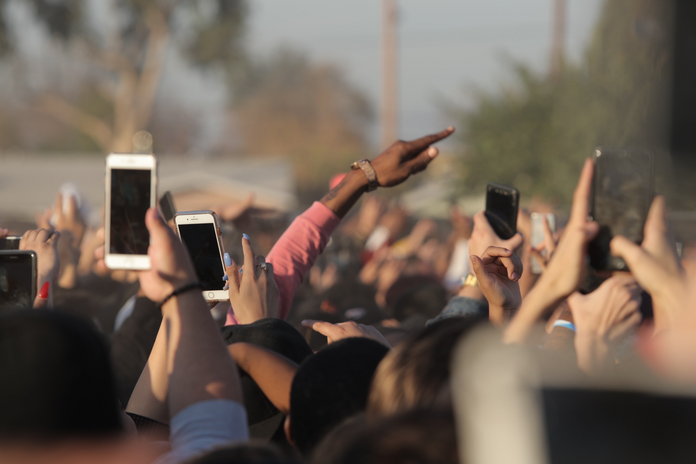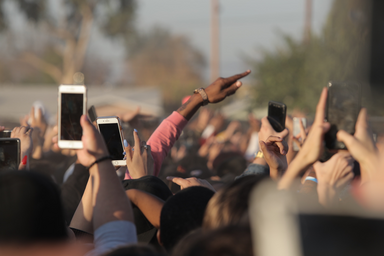Admit it. If you are under the age of 30, you love online personality quizzes. What color am I? What Harry Potter character is most like me? Based on my birth date, what kind of spouse will I have? A definite answer is easy to provide when accuracy is an extraneous concern. However, there are no quizzes that answer the questions ‘am I pretty,’ ‘am I popular,’ ‘will I be able to withstand public opinions if I….’ Instead, we feel we can assume the answer based on our social media account. The answers we conclude from social media sites on our own concerns self-esteem. Self-esteem is defined by Merriam-Webster as “a feeling of having respect for yourself and your abilities” and also “a confidence and satisfaction in oneself.” My focus is on fragile high self-esteem as I deem it as something present in almost all Millennial and Generation Z individuals that should not be. Fragile high self-esteem is a predictable, yet depreciated personality alteration brought on most strongly by the rise of social media within the last five years.
Any study that analyzes people and personalities almost always include a spectrum. Spectrums “grey-zone” people. They do not provide a diagnosis or definite answer to anything. One cannot simply be categorized to have high or low self-esteem, as one’s position on this grey line between two extremities is always slightly changing. However, I choose to bring attention to social media as a big neglected cause for drastic personality transformations. Sites including Facebook, Instagram, Twitter, Tinder, Snapchat, etc. have engulfed every individual’s life. Whether we embrace it or attempt to ignore it, it controls us, and can brutally alter who we are down to our very morals. Self-esteem is not to be confused with confidence. One can be very confident, yet have fragile high self-esteem. Social psychologist and author Amy Cuddy brought this concept to life for me within the first chapter of her revolutionary book, “Presence.” A confident person has a strong sense of trust in their decisions: ‘I WILL wear this outfit today,’ ‘I KNOW the answers to this test,’ or ‘I TRUST I’ll make the right decision.’ Confidence is evident in many individuals apart from the younger generations due to strong morals and goals, a good upbringing and/or support system. The Millennials and Generation Z strive to prove themselves and do well, but are blatantly blind to social media’s damage on the high self-esteem needed to coincide with success.
It’s been said again and again:
“If you really believe in yourself, you cannot listen to other people.” -Joan Jett
“Believe in yourself and stop trying to convince others.” -James De La Vega
“Believe in yourself when nobody else does.” -Mary J. Blige
But our newsfeeds, likes, follows, shares, comments, tell us something else. I stated earlier that this has become a prominent problem within the past 5 years because we are entering an era completely submerged in social media. Facebook and Twitter were introduced respectively in 2004 and 2006. Additionally, by 2011, Instagram and Snapchat were also in full swing.
These sites thrive off vanity. The only purpose of “selfies” are to have a substantial amount of likes. The sad association people attribute to likes on a picture is; the more likes I get, the more friends I have, or the more popular I am, or the hotter I look. We are all guilty of egotism, but these online portals for vanity make us addicts of third party acknowledgment and acceptance. Suddenly confidence is contradicted with fragile self-value. We THINK we believe in ourselves, but we also like to know what other people think of us.
I speak passionately about this because I acknowledge that I too have been blind to my need for validation. It is not deadly or something that requires prescription drugs, which makes it seem inconsequential, but it impedes on self and future success, and will result in greater psychological impediments for younger generations born into a world already focused on social media reactions. Cyber bullying and its effects serve as a notorious example of visible psychological impediments caused by social media.
In a study about verbal defensiveness, researchers concluded that “fragile high self-esteem involves favorable, but shallow, feelings of self-worth that often fluctuate a good deal from day to day or within a given day. For individuals with fragile high self-esteem, positive feelings of worth often depend on matching some criterion representing what it means to be worthy, such as excelling in academics or sports or being popular or attractive. Without continual validation through such things as achievements or compliments, individuals’ feelings of self-worth may plummet” (Kernis M., Lakey C., Heppner W.). “May plummet” is the key phrase here, because this need for acceptance is preventable when acknowledged. In Amy Cuddy’s book “Presence,” she discusses that this need to be accepted is more of a want, and if we acknowledge the anxiety associated with this want we can move past it, thus building a strong and stable sense of high self-esteem. For example, “I clearly see that my friend is having more fun this summer than I am, and is posting it everywhere, but that cannot concern me. I acknowledge how that makes me feel, but I am not going to dwell on it. Comparing my life to someone else’s does nothing.”
I recognize that I only talk about individuals with high self-esteem. On a ‘where do I stand with self esteem’ spectrum, there are two obvious extremities. Stable high self-esteem, and unstable low-self esteem. I chose to focus on fragile versus stable high self-esteem because these are the people who don’t know or see this potential personality obstacle that may already be holding them back. Self-esteem works harmoniously with confidence and success. The concept and/or phrase “Fake it ‘til you make it” works fine with confidence, but self-esteem is an inner acceptance, and sometimes a battle, too.
I cannot yet make conclusions on my theories and observations without research and tests, however, I hope to provide some insight to where we all stand with balancing vanity and dependence and promote self-reflection through this article. I’ll end my introduction on this deep unraveling study on self-improvement and acknowledging fragile high self-esteem, with a self-reflecting and zen-like thought:
If one can acknowledge fault and flaw in one’s self, then they can grow and find peace beyond their inner conflicting thoughts.
References
Cuddy, A. (2015). Presence: Bringing your boldest self to your biggest challenges. New York: Little, Brown and Company.
Kernis, M. H., Lakey, C. E. and Heppner, W. L. (2008), Secure Versus Fragile High Self-Esteem as a Predictor of Verbal Defensiveness: Converging Findings Across Three Different Markers. Journal of Personality, 76: 477–512. doi:10.1111/j.1467-6494.2008.00493.x
Believe In Yourself Quotes. (n.d.). Retrieved July 31, 2016, from http://www.brainyquote.com/quotes/keywords/believe_in_yourself.html

